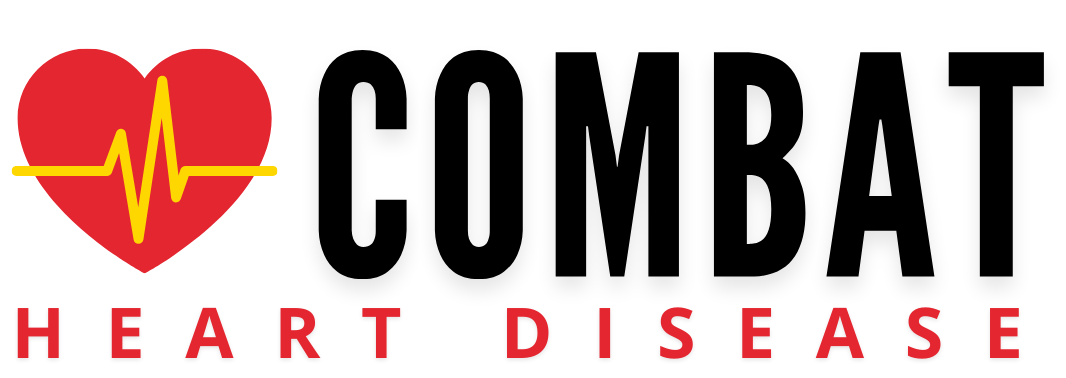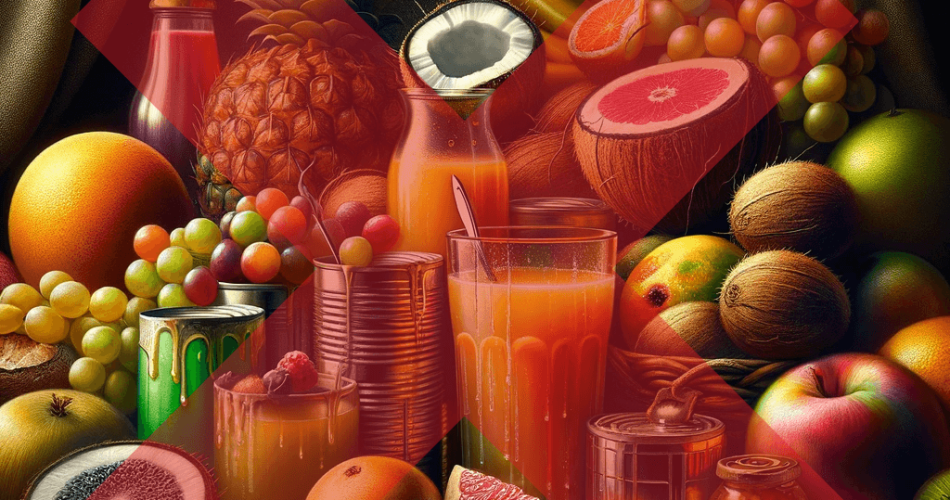As a dedicated advisor in the combat against heart disease, I can’t overstate the significance of a well-orchestrated diet in managing high blood pressure. It’s pivotal to recognize that our choices, particularly regarding the fruits we consume, play a critical role in controlling blood pressure levels. With a heart full of enthusiasm and concern, I’m here to walk you through the “7 Worst Fruits For High Blood Pressure,” providing not just the ‘whys’ but also the ‘what-nexts’ to ensure your ticker keeps ticking just right.
Understanding High Blood Pressure
Hypertension is an elusive adversary, often earning the moniker “silent killer.” Without a parade of symptoms, it can usher in a host of severe health issues, including heart disease and stroke.
Causes and Risks Associated With High Blood Pressure
From genetics to our daily routines, the culprits behind high blood pressure are diverse. Lifestyle choices, including diet, physical activity, and stress, are the chess pieces in the game of controlling blood pressure. Intriguingly, fruits, which we consume for their health benefits, can also play a paradoxical role in either supporting or undermining our blood pressure management efforts.
Fruits and Blood Pressure: A Double-Edged Sword
Fruits, rich in essential nutrients, are key to a balanced diet. But beware, not all fruits serve us equally, especially when it comes to blood pressure. Let’s take a closer look at these seemingly innocent culprits that might be secretly nudging our blood pressure in the wrong direction.
7. Kiwi (in Excess)
The Nutritional Paradox of Kiwi
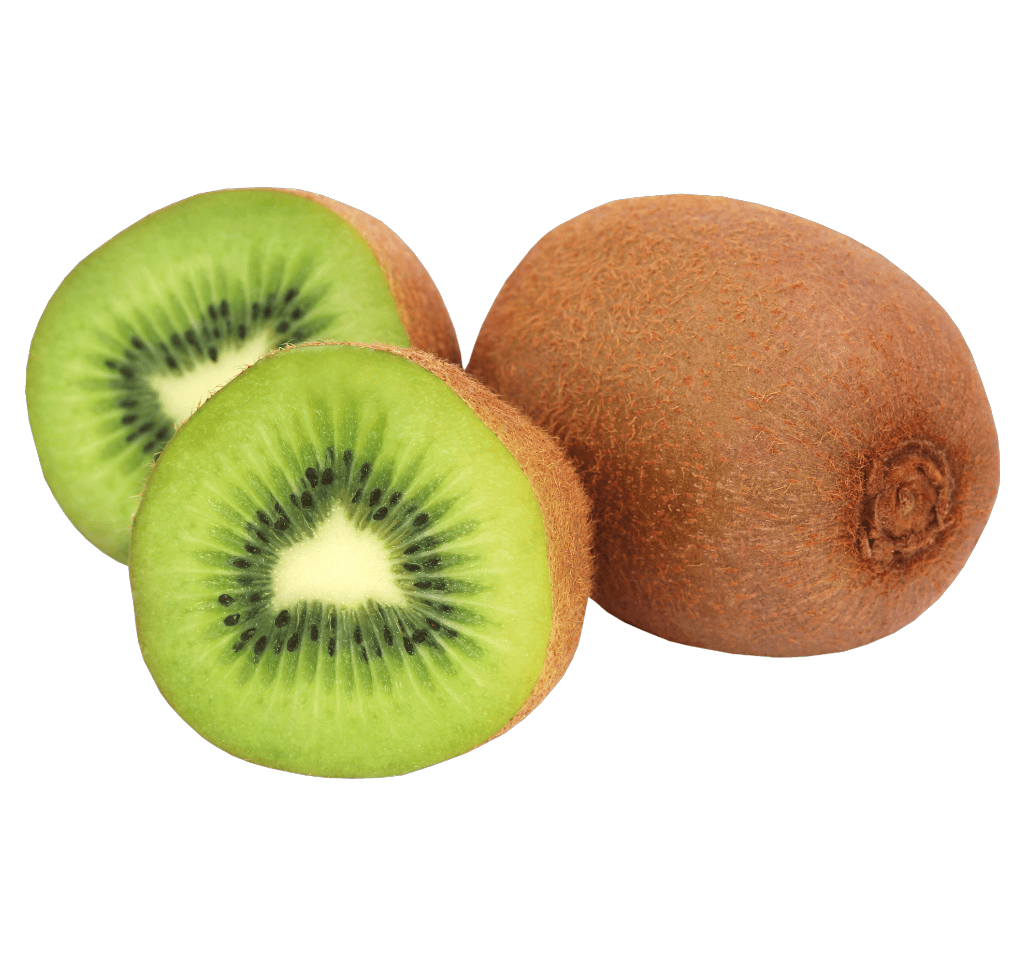
Kiwi is often heralded as a superfood, a vibrant green fruit brimming with vitamins and minerals. Yet, even superfoods have their kryptonite, especially when consumed in large amounts.
Potassium Content in Kiwi: A Balancing Act
A single kiwi contains about 215 milligrams of potassium, contributing to its blood pressure-lowering capabilities. However, the American Heart Association underscores the importance of balance, especially concerning potassium intake. Adults are advised by the National Institutes of Health to consume around 2,600 to 3,400 milligrams of potassium daily. Exceeding this, particularly beyond 3,500 milligrams, can lead to hyperkalemia, a condition with potential dire repercussions for those with compromised kidney function, as it hampers potassium regulation.
Kiwi and Medication Interaction
Less known is kiwi’s content of actinidain, an enzyme that can interfere with medications, including blood thinners—a staple in the treatment regimen for many heart-related conditions. It is imperative for individuals on such medications to have a heart-to-heart with their healthcare provider about their fruit intake to avoid adverse interactions.
Moderation is Key
With this information at hand, kiwi can maintain its status as part of a heart-healthy diet if its consumption is moderated. Aiming for a kiwi a day can keep the potassium levels in check, benefiting heart health within the safe confines of recommended intake.
6. Coconuts
The Heart Health Controversy of Coconuts
The coconut, with its association with idyllic beach scenes, might seem like an escape for the senses, yet for heart health, it’s a different story.
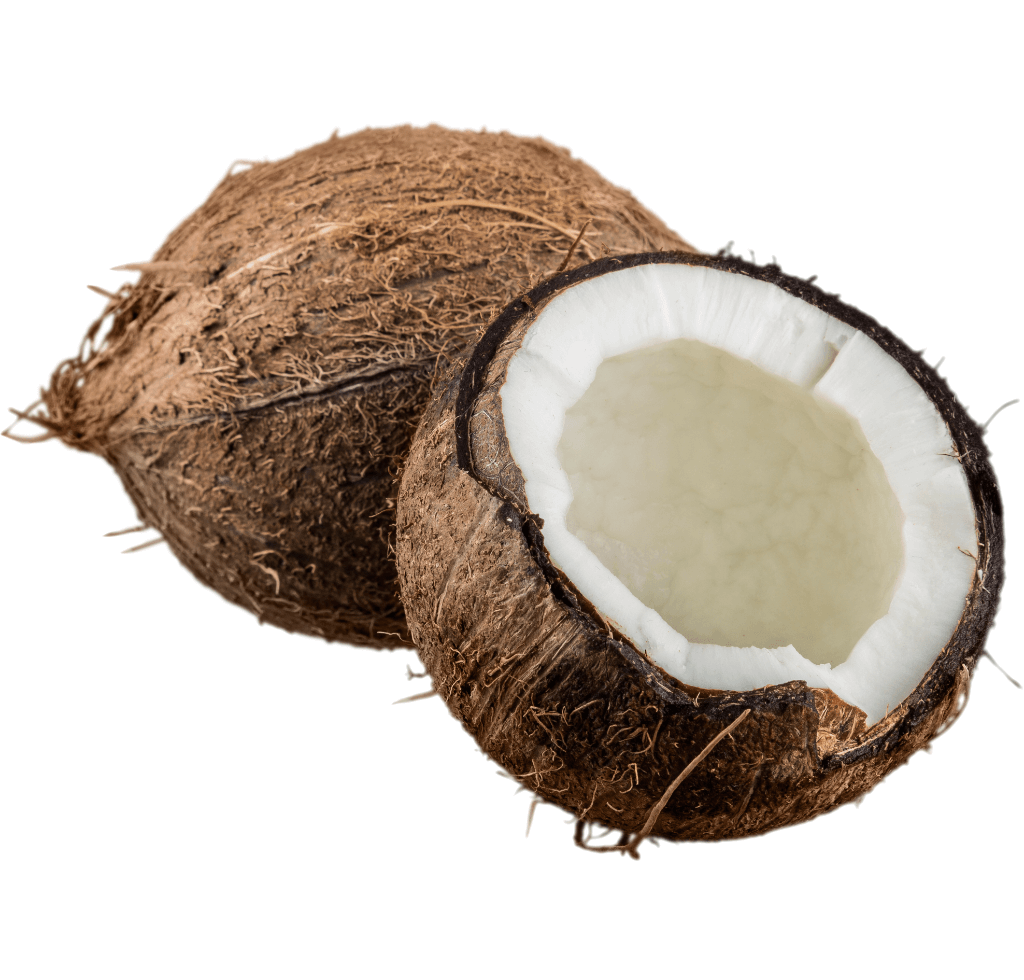
Saturated Fat: Coconuts’ Hidden Challenge
Coconuts are laden with saturated fat, linked to increases in LDL cholesterol, colloquially deemed the ‘bad’ cholesterol. This link between elevated LDL cholesterol and an increased risk of high blood pressure and coronary artery disease is well-established. Consider that one cup of shredded coconut meat boasts approximately 29 grams of fat, which is about 45% of the recommended daily intake based on a 2,000-calorie diet. The American Heart Association suggests limiting saturated fat to a mere 5% to 6% of total daily calories. That translates to roughly 13 grams of saturated fats for a standard 2,000-calorie intake, putting a single cup of coconut meat at almost double this limit.
MCTs in Coconuts: A Mixed Picture
While coconuts contain medium-chain triglycerides (MCTs), which are praised for weight management and a potentially less harmful impact on heart health, the overall benefits are still debated. The concern is that the high saturated fat content may overshadow any positive effects of MCTs.
How to Enjoy Coconuts Wisely
For those who cherish coconuts, there are healthier ways to indulge. Coconut water is a hydrating option with considerably less fat content than coconut meat. Also, adding just a sprinkle of coconut shavings to a dish can enhance flavor without heavily impacting your fat intake. Such mindful consumption allows for enjoyment without forsaking heart health.
5. Some Fruit Juices
The Hidden Sugars in Fruit Juices
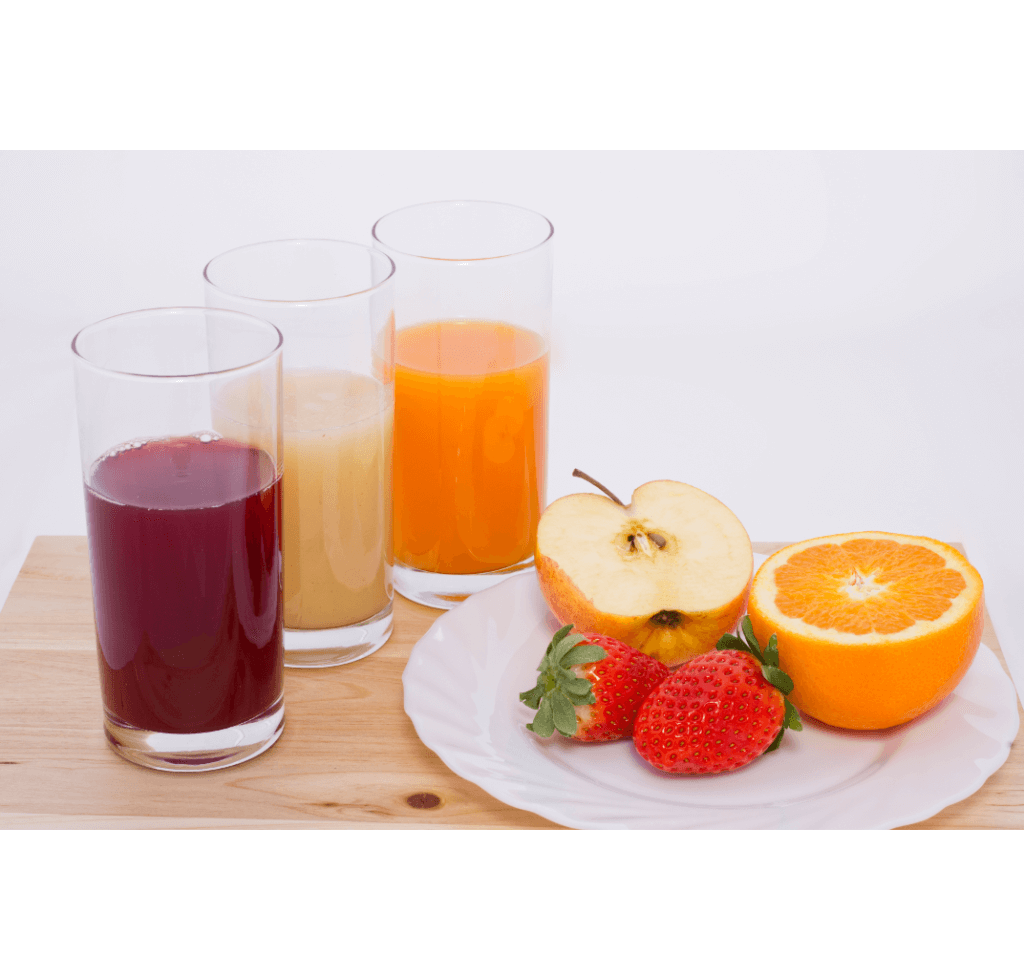
At number five on our list are seemingly innocent fruit juices, which are often mistaken for heart-healthy drinks. However, when we sift through the facts, their impact on blood pressure and overall heart health is much more intricate.
Fiber Loss and Sugar Spikes
When fruit is juiced, the essential dietary fiber, crucial for slowing down sugar absorption, is stripped away. This absence of fiber means that drinking a glass of apple, grape, or orange juice can introduce a rush of sugar into your bloodstream. To illustrate, grape juice contains around 36 grams of sugar per serving— a sugar level comparable to what you would find in many sodas. Apple juice follows closely with about 24 grams of sugar per glass. These sugars, when rapidly absorbed, can lead to an insulin spike and subsequent drop in blood sugar, setting the stage for insulin resistance, a precursor to both hypertension and heart disease.
Scientific Perspectives
A study published in the Journal of the American College of Cardiology draws a direct line connecting the consumption of sugary beverages, including fruit juices, to an increased risk of hypertension. It’s clear that juices, despite their healthful image, can be detrimental to those monitoring their blood pressure.
Choosing Whole Fruits Over Juices
The healthier choice is to opt for whole fruits instead of their juiced counterparts. The fiber in whole fruits aids in satiety and moderates sugar absorption, providing a more favorable option for blood pressure management.
4. Ripe Bananas
Sugar Content and Heart Health
In the fourth spot are ripe bananas, prized for their portability and natural sweetness. However, they pose a subtle risk for those with a keen eye on heart health.
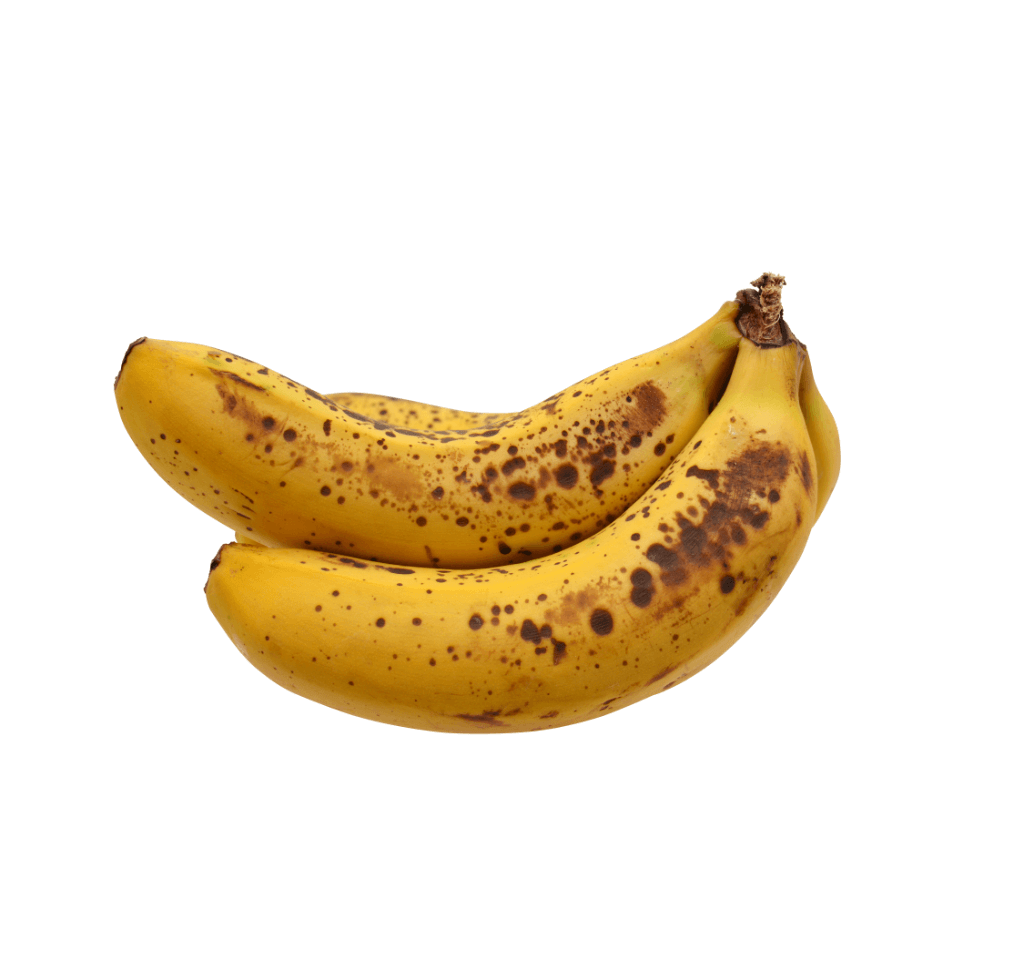
Potassium vs. Sugar in Bananas
While a medium-sized banana boasts about 422 milligrams of potassium, an essential mineral for heart and blood pressure health, it also brings along approximately 14 grams of sugar. The ripening process of a banana turns resistant starch—good for gut health—into natural sugars, escalating the chances of sugar spikes.
The Green Banana Advantage
For those concerned about heart health, the stage at which a banana is consumed is key. Slightly green bananas are lower in sugar and higher in resistant starch. This balance aids in maintaining stable blood sugar levels and provides energy more evenly. Furthermore, green bananas can support weight management—a critical aspect of heart health—by promoting fullness and reducing overall calorie intake.
Integrating Bananas into a Heart-Healthy Diet
To include bananas in your diet while being mindful of heart health, consider these suggestions:
- Smoothie Blends: Use just-ripe bananas in smoothies, adding oats or other fibrous ingredients to temper the sugar release into your bloodstream.
- Baking Substitutions: In baking, use bananas that are less ripe to naturally sweeten your recipe, which can help you cut down on added sugars. Try them in recipes for banana bread or muffins where their texture and sweetness can be a perfect fit.
3. Canned Fruit in Syrup
The Hidden Costs of Convenience
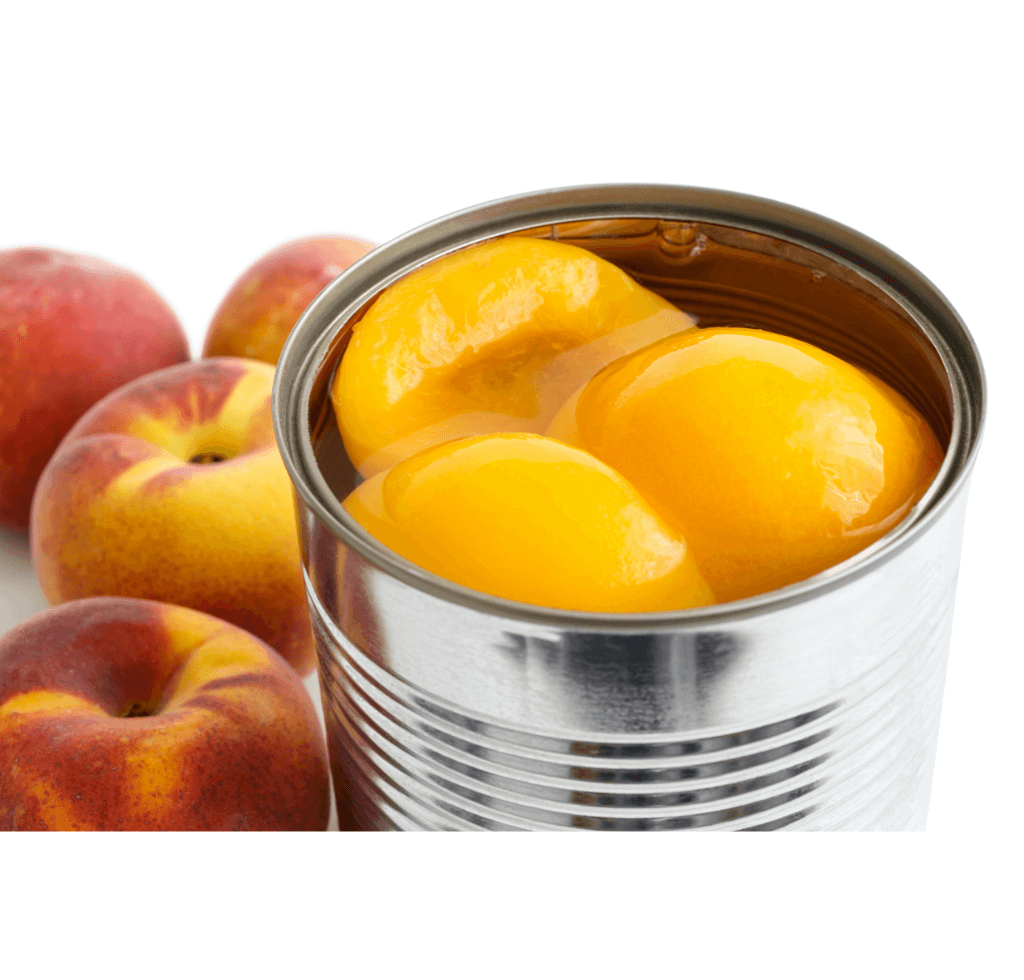
Securing the third spot in our lineup of fruits to be cautious about for heart health is canned fruit in syrup. It serves as a stark example of how convenience can come at the cost of well-being.
Sugars and Cardiovascular Risk
A groundbreaking study from the Harvard School of Public Health, which observed over 70,000 women for nearly two decades, concluded that high intake of added sugars significantly increases the risk of death from cardiovascular disease. With just a half-cup of canned fruit drenched in syrup containing more than 20 grams of added sugar, the stakes for heart health are high.
The Impact of Syrup
The syrup that canned fruits are immersed in often contains high fructose corn syrup, notorious for its association with obesity and insulin resistance. Beyond the sugar content, these canned fruits usually lack the fiber present in their fresh counterparts, which is key for reducing cholesterol and regulating blood sugar levels.
Making Healthier Choices
For those seeking to preserve heart health, the best alternatives are fresh or frozen fruits without added sugars. If canned fruits are unavoidable, opt for those canned in water or their own juice, and be vigilant about draining the syrup. Always read labels to check for added sugars, which can appear under various aliases.
2. Grapefruit
A Double-Edged Citrus
As we approach the top of our list, we find grapefruit, a fruit celebrated for its high vitamin C and fiber content but which poses potential risks for individuals with high blood pressure.
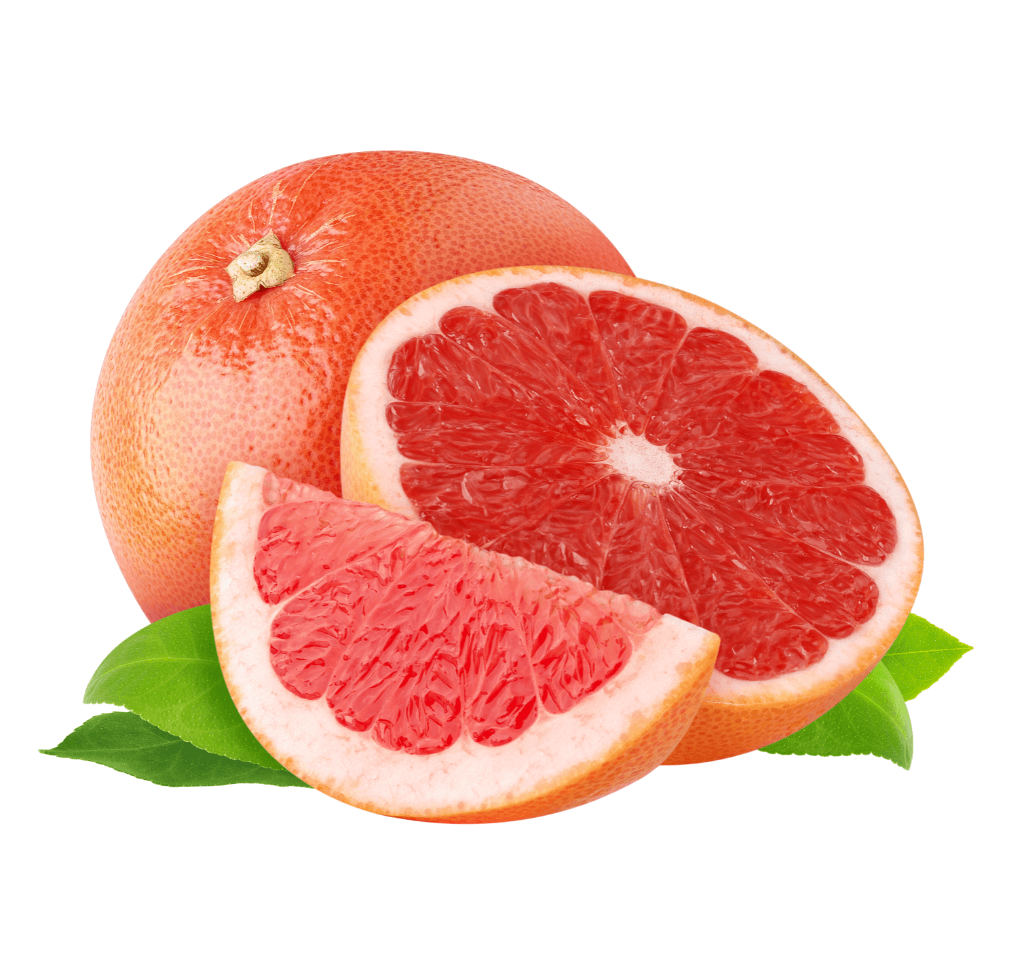
Medication Interactions
Grapefruit’s interaction with medications is where caution is crucial. This fruit inhibits the cytochrome P450 3A4 enzyme, responsible for metabolizing many medications, including those for high blood pressure. The result is an increased concentration of these drugs in the bloodstream, potentially amplifying both their effects and side effects.
Lasting Effects
The impact of grapefruit on medication metabolism is not momentary; it can continue for up to 72 hours after ingestion. Beyond blood pressure medications, grapefruit can affect the efficacy and safety of over 85 different drugs, with serious interactions occurring with 43 of them, including some statins.
Navigating Grapefruit Consumption
For those taking blood pressure medications, it’s essential to have a detailed conversation with a healthcare provider about dietary choices and medication interactions. Carefully reading medication labels for dietary restrictions is equally important. Alternative citrus fruits like oranges or lemons may offer a safer choice without the same risks.
Grapefruit in a Heart-Healthy Diet
For individuals not on medication, grapefruit still offers benefits, such as antioxidants like lycopene, which have been linked to a lower risk of stroke. Yet, monitoring blood pressure response to grapefruit is advised due to varying individual reactions. Ultimately, grapefruit can play a role in a healthy diet, but its consumption must be carefully managed, especially when medications are involved.
1. Crystallized and Candied Fruit
The Deceptive ‘Healthy’ Sweet
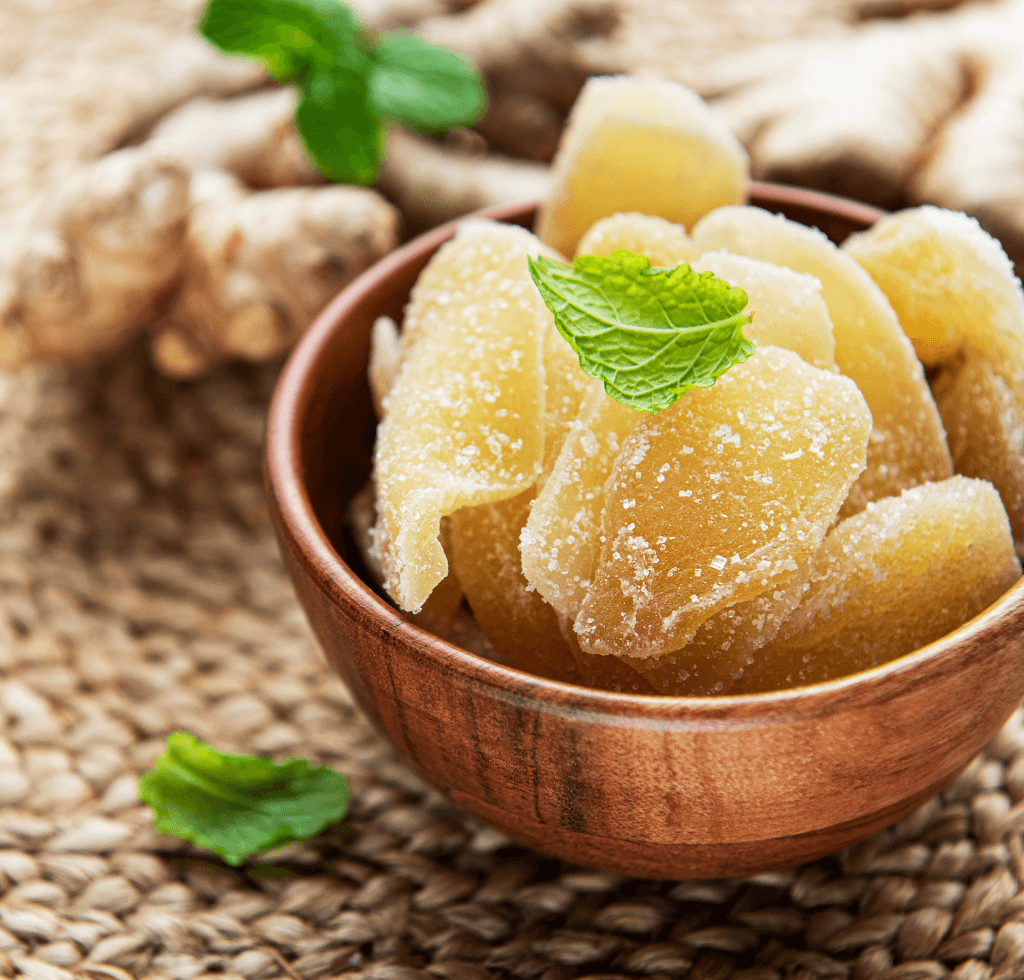
At the zenith of foods to be wary of for blood pressure management, crystallized and candied fruits present themselves. Often masquerading as a wholesome treat, they are steeped in sugar, creating a paradox of healthful appearance and unhealthful content.
The Sugary Disguise
The process of crystallizing fruit not only hikes up the calorie content but also amplifies the sugar levels substantially. This excessive sweetness is more than a mere flavor enhancer; it poses serious challenges to health, particularly to the regulation of blood pressure.
Understanding the Sugar Content
Comparing to Candies
A standard serving size of candied fruit carries an astounding 30 grams of sugar or more. To put this into perspective, this is nearly equivalent to the sugar content in some candy bars. Candied pineapple is a stark example, with a 100-gram serving potentially containing up to 80 grams of sugar, surpassing the recommended daily limit for added sugars.
Metabolic Impact
This significant sugar load has immediate consequences on blood sugar and insulin levels, leading to a state of metabolic disturbance. The risks are backed by research, which indicates a direct correlation between sugar intake and cardiovascular disease mortality.
Health Implications
Blood Pressure and Fructose
High fructose levels, such as those found in candied fruits, have been linked to a rise in blood pressure, as highlighted by studies including one from the ‘Journal of the American Society of Nephrology’. But the implications don’t stop there.
Weight Gain and Hypertension
These sweetened fruits are not just a concern for their direct impact on blood pressure; they also contribute to weight gain, a known factor in the development of hypertension.
Navigating Toward Healthier Choices
The Clear Advice
For those dedicated to maintaining or improving their blood pressure, the guidance is straightforward: avoid candied and crystallized fruits. Instead, turning to fresh fruits is the way forward.
Benefits of Whole Fruits
Whole fruits offer the sweet satisfaction that many seek but come with fibers, vitamins, and minerals that support blood pressure regulation. This natural package does not carry the health risks associated with the high sugar content of candied fruit, making it a far superior choice for those concerned about heart health.
Incorporating Healthy Fruits into Your Diet
Choosing Wisely
When adding fruits to your diet, it’s important to select varieties that offer the greatest benefits with the least amount of negative impact on blood pressure and overall heart health. Opt for fresh fruits, or those frozen or canned without added sugars, to maximize nutrient intake while minimizing added sugars and unhealthy fats.
Portion Control
Even with healthy fruits, portion control is crucial. Eating fruits in moderation ensures that you get the necessary vitamins and minerals without overconsuming calories and sugars, which can counteract the benefits.
Diversity in Fruit Intake
Incorporate a rainbow of fruits to enjoy a broad spectrum of nutrients. Different colors often signify different vitamins and antioxidants, so a colorful plate can contribute to a well-rounded diet.
Combining Fruits with Other Foods
Pairing fruits with proteins or healthy fats can help balance blood sugar levels. For example, eating an apple with a handful of almonds can prevent the rapid spike in blood sugar that might occur if the apple were eaten by itself.
Timing Matters
Consume fruits at times when your body may need an energy boost, such as before or after a workout. The natural sugars can provide quick energy while the fiber helps sustain it.
Preparation is Key
Preparing fruits in ways that retain their nutritional value, such as raw or lightly steamed, is preferable. Avoid cooking methods that add unhealthy fats or sugars.
Making Informed Choices for Heart Health
Understanding the Big Picture
Recognizing the roles different fruits play in your diet and their effects on heart health is key. Not all fruits are created equal, especially when it comes to managing conditions like high blood pressure.
Consultation with Healthcare Providers
Always consult with healthcare professionals about dietary choices, especially if you have health concerns or are on medication. They can provide personalized advice based on your health status and nutritional needs.
FAQs
1. What fruits are best for high blood pressure?
Fruits low in sugar and high in fiber, such as berries, apples, and pears, can be beneficial for managing blood pressure. Additionally, fruits rich in potassium, like bananas and oranges, can help counteract the effects of sodium in the body.
2. Can I eat dried fruits?
Dried fruits can be consumed in moderation but be aware that they are higher in sugar and calories than fresh fruits. It’s also important to check for added sugars in the ingredient list.
3. How much fruit should I eat daily?
The general recommendation is to consume at least 2 servings of fruit per day, but this can vary based on individual dietary needs and restrictions. Consulting with a dietitian can provide more personalized guidance.
4. Are fruit juices healthy?
Fruit juices should be consumed sparingly as they lack fiber and can be high in sugar. Opting for whole fruits instead is usually the healthier choice.
5. Can I eat fruit if I have diabetes?
Yes, but it’s important to monitor portion sizes and choose fruits lower in sugar. Pairing fruit with a protein or healthy fat can also help manage blood sugar levels. Always consult with a healthcare professional for advice tailored to your specific condition.
